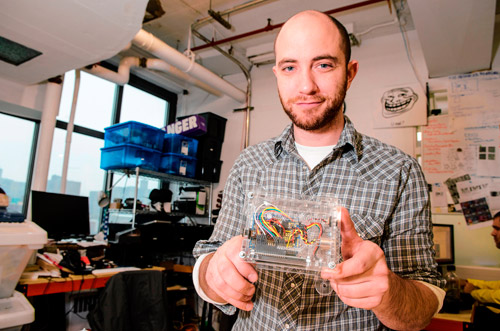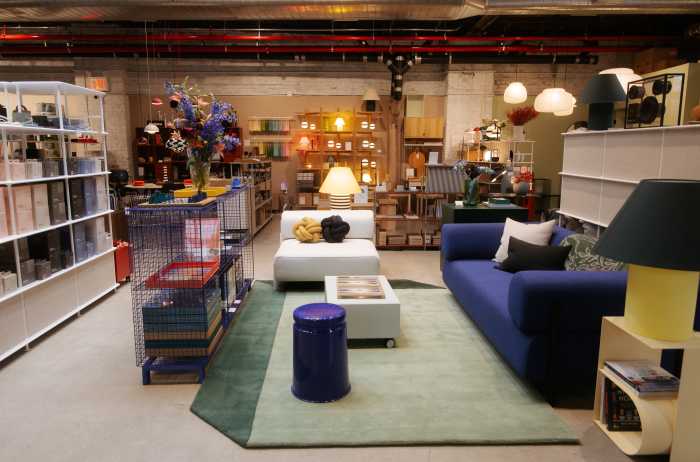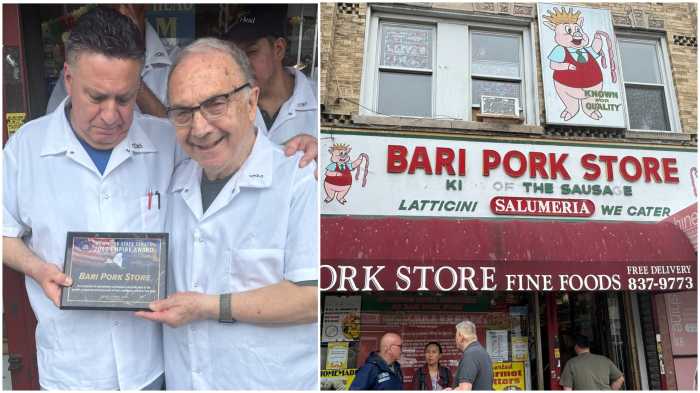An incubator grows in — wait for it — another, larger incubator.
Brooklyn Research is a research lab and shared workspace that opened two years ago in the former Pfizer building on Flushing Avenue in Bedford-Stuyvesant. A trio of New York University alumni started the project inside the big arts and technology complex in hopes of bringing together a community of small-scale manufacturers.
“Everyone needs space,” said Johnny Lu, one of the founders. “We just wanted to do something a little more formal and collaborative.”
The space includes three-dimensional printers, a laser cutter, an embroidery machine, and a full wood shop, along with an array of smaller tools and electronics. Members pay $300 per month for a desk in the space or $200 per month for access to the equipment. The fees go towards rent, which runs around $5,000, and towards new equipment that the members help to pick out, the managers said.
“We try to be fairly communal about it,” said Ezer Longinus, another of the founders.
Projects in progress at Brooklyn Research vary dramatically. The membership includes software developers, installation artists, commercial designers, and instrument makers. Each of them had to apply for space by describing his or her projects. The friends at the helm choose tenants more for the ingenuity of their ideas than their money-making potential, Longinus said.
“It’s not product-driven, but we want to have a fairly diverse mix. We want a lot of cross-pollination,” he said.
Artist Matt Rader has been working out of Brooklyn Research for around a year. His current passion project is called “Dubstep Dinosaurs,” an interactive, three-dimensional video of dancing, humanoid dinosaurs. Rader hopes the holographic reptiles can serve as a proof of concept for an interactive movie that is built on a platform usually used for video games.
“I’m super excited about the possibilities,” he said.
The space is a good place to work, Rader said, especially because it gets him out of the house.
“We have four cats at home. You can’t get anything done,” he said.
Other creations in progress include a toy that can be controlled by a cellphone, three-dimensionally printed jewelry, and a planning tool for software designers.
Lu, Longinus, and their partner Alex Dodge initially had a single room in the Pfizer building. At the time the complex had more vacant space, and nine months after moving in, they began expanding. Now the facility includes three separate group office spaces, a conference room, a kitchen, and the wood shop. The rest of the building has really filled in, too, Longinus said.

“There’s a good sense of community between the different businesses in the building,” he said. “We have pretty good relationships with our neighbors and we can help each other out sometimes.”
The trio also performs consulting work for corporate clients. Lu said it is what keeps the group afloat.
“We need to have the profit arm to make the other side work,” he said.
For instance, the team made a display for fitted-cap juggernaut New Era that measured a person’s head size with a laser at the 2012 Super Bowl. The contract jobs help the crew learn new skills and master different technologies, Lu said.
“Working through their ridiculous problems, we come across all sorts of things that we can use for other purposes,” he said.
Techno Files
This week Borough President Adams launched a pilot program for a textbook-free classroom in three Brooklyn schools. A partnership between the Beep’s office and digital education company Copia Interactive will bring the system to two schools in Williamsburg and one in Brownsville.
• • •
Mayor DeBlasio unveiled a citywide program that is supposed to replace public pay phones with tech stations. The new program, called LinkNYC, aims to bring free wireless internet to large swaths of the city and is being built at no cost to taxpayers by a team of communications, advertising, and hardware companies going by the name CityBridge, according to the Mayor’s Office. The system is supposed to be financed by advertising and offer free phone calls, a touch screen display to access city services, and cellphone charging stations.
• • •
Center for an Urban Future, a research group, honored Dumbo craft giant Etsy at its annual gala this week. The think tank credits the company with helping thousands of Brooklyn artists sell their work, and points out that there are more Etsy sellers in New York than yellow cabs.
• • •
New York University Polytechnic School of Engineering dean Katepalli Sreenivasan appeared at a panel discussion about technology this week hosted by the magazine City and State. He talked about how the school system can better prepare kids and young adults for careers in technology.



























